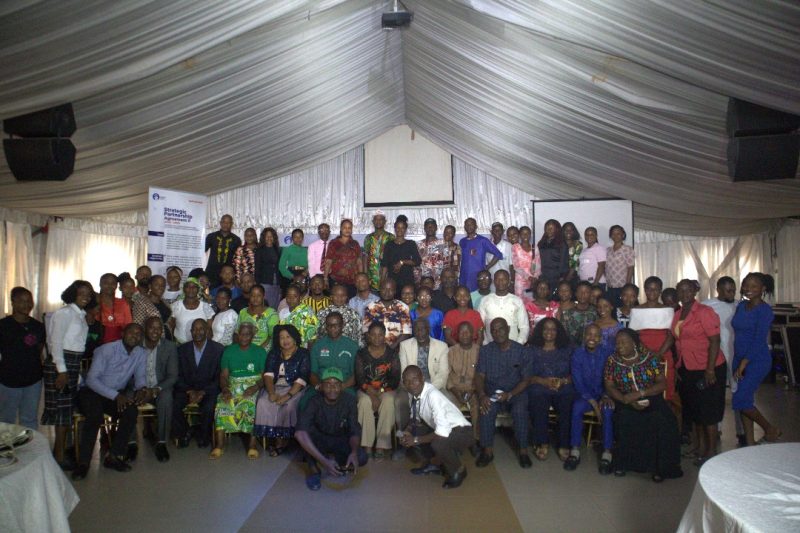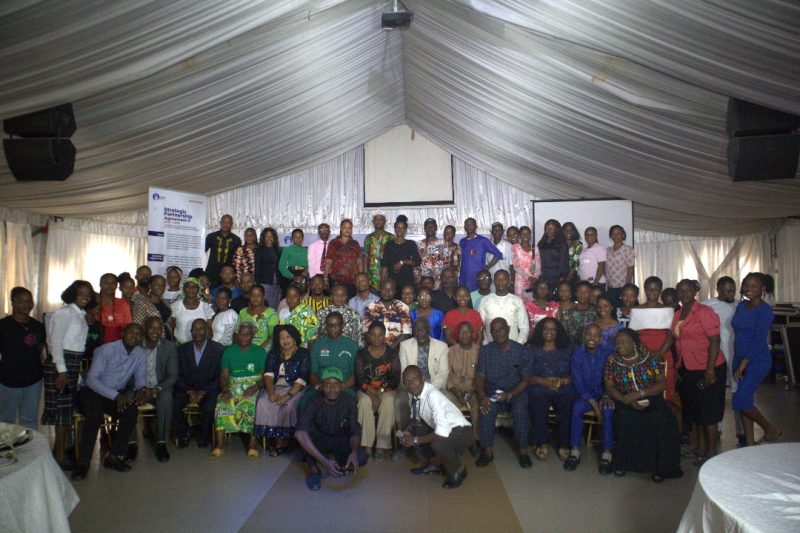
The Clement Isong Foundation (CIF) and stakeholders in the agricultural sector have called on the government of Akwa Ibom State to adopt agroecology, noting that it has significant potential to improve food security, enhance environmental sustainability, and promote better health outcomes.
Agroecology is a science, set of practices, and social movement that applies ecological principles to design and manage food and agricultural systems, aiming to optimize interactions between plants, animals, humans, and the environment for sustainable and equitable food systems.
The call was canvassed in a communique issued on Tuesday, March 25, 2025, when Clement Isong Foundation (CIF), in partnership with ActionAid Nigeria, held a 1-day Agroecology Knowledge Sharing Event in Uyo.
The event brought together a diverse range of stakeholders, including government agencies, farmers, researchers, and civil society organizations, to promote agroecological practices and address challenges to sustainable agriculture in Akwa Ibom State.
The communique observed that farmers face challenges in accessing markets, finance, and organic inputs, partly due to inadequate documentation and limited awareness of agroecological practices.
According to the communique, policy inconsistencies and a lack of harmonization among government agencies hinder the widespread adoption of agroecology.
Participants noted that women farmers encounter unique barriers, including limited access to mechanized tools and infrastructure for food processing.
They complained over insufficient integration of research outcomes into agroecological practices, which they said affects the practical applicability of academic findings.
To address the issues, the participants recommended that the government of Akwa Ibom State strengthen community-driven training programmes on agroecology, with a focus on both crop and livestock production.
They advocated for the gradual reduction of inorganic farm input imports while promoting local organic alternatives.
According to the Communique, the government needs to facilitate policy harmonization across relevant government agencies and ensure that Environmental Impact Assessments (EIAs) are conducted for agricultural projects and shared with stakeholders.
Participants called for the recapitalization of the Bank of Agriculture (BOA) and enhancement of financial literacy to improve farmers’ access to credit.
The participants asked the government to develop and disseminate accessible knowledge products, including online resources, to support farmers.
They said there is a need to leverage social media platforms to increase awareness and scale up agroecological advocacy.
Part of the recommendation included “Promoting the establishment of an organic farmers’ network to improve value addition, branding, and market segmentation. Enhancing collaboration with ActionAid Nigeria to provide targeted training and support for female farmers in the Smallholder Women Farmers Organization of Nigeria (SWOFON).
“Addressing gender-specific barriers by supporting women’s access to infrastructure for food processing. Fostering partnerships between government and universities to fund agroecology research and ensure that research outcomes are translated into practical solutions for farmers.
“Encouraging integrated farming systems and the adoption of sustainable land-use practices to enhance resilience and productivity.”
Key presentations highlighted the potential of agroecology to improve food security, environmental sustainability, and health outcomes. Dr. Caroline Gordian of the CIF emphasized the need for increased government funding for agroecology, while Mr. Howard Usen, who spoke on Market Systems Approach to Agroecology and Sales, stressed the importance of market linkages, policy harmonization, and certification initiatives to enhance value chains.

The Clement Isong Foundation, through the Executive Director, Elkanah Oluyori, thanked all participants, facilitators, and government agencies for their contributions to the event’s success.
He expressed optimism that with a renewed commitment to advancing agroecology, stakeholders will be poised to build a more sustainable and resilient agricultural system in Akwa Ibom State.

